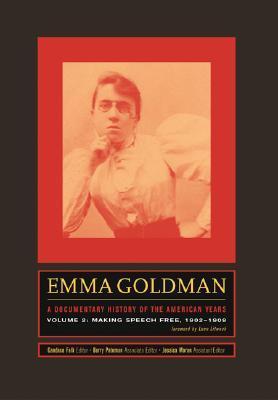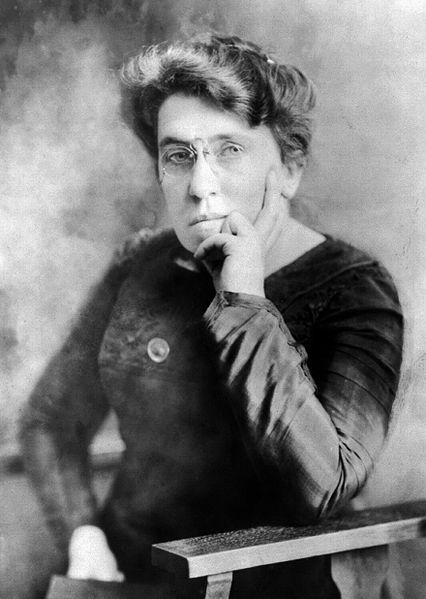
Emma Goldman: A Documentary History of the American Years redefines the historical memory of Emma Goldman and illuminates a forgotten yet influential facet in the history of American and European radicalism. This definitive multivolume work, which differs significantly from Goldman's autobiography, presents original texts—a significant group of which are published or translated into English for the first time—anchored by rigorous contextual annotations. The distillation of years of scholarly research, these volumes include personal correspondence, newspaper articles, government surveillance reports from America and Europe, dramatic court transcripts, lecture notes, and previously unpublished documents retrieved from obscurity. Biographical, newspaper, and organizational appendices are complemented by in-depth chronologies that underscore the complexity of Goldman's political and social milieu. Making Speech Free, 1902–1909, the second volume in the series, chronicles Goldman's pivotal role in the early battle for free expression. It highlights the relationship between the development of the right of free speech and turn-of-the-century anarchist ideas. The enactment of anti-anarchist laws and the organization of groups in protest occupy center stage among the primary documents. Within this frame, the volume presents Goldman's evolving attitudes toward violence in both its European and American contexts, the emergent revolution in Russia, and the beginnings of the Modern School education movement in America, the social significance of European modern drama, and the right of labor to organize against unfair working conditions in the United States. The volume features the early evolution of Goldman's magazine, Mother Earth, launched in 1906, which promoted a blending of modern literary and cultural ideas into her radical and social political agenda and became a platform for the articulation of her feminist critique, an expression of her international reach, and a marker of her desire to spread anarchist ideas outside the immigrant left. Making Speech Free also tracks Goldman's emergence as a writer and orator whose scathing critique of hypocrisy in all realms of life and politics would eventually capture the attention and imagination of America.
Author

Emma Goldman was a feminist anarchist known for her political activism, writing and speeches. She played a pivotal role in the development of anarchist political philosophy in North America and Europe in the first half of the twentieth century. Born in Kovno in the Russian Empire (present-day Kaunas, Lithuania), Goldman emigrated to the US in 1885 and lived in New York City, where she joined the burgeoning anarchist movement.Attracted to anarchism after the Haymarket affair, Goldman became a writer and a renowned lecturer on anarchist philosophy, women's rights, and social issues, attracting crowds of thousands. She and anarchist writer Alexander Berkman, her lover and lifelong friend, planned to assassinate Henry Clay Frick as an act of propaganda of the deed. Although Frick survived the attempt on his life, Berkman was sentenced to twenty-two years in prison. Goldman was imprisoned several times in the years that followed, for "inciting to riot" and illegally distributing information about birth control. In 1906, Goldman founded the anarchist journal Mother Earth. In 1917, Goldman and Berkman were sentenced to two years in jail for conspiring to "induce persons not to register" for the newly instated draft. After their release from prison, they were arrested—along with hundreds of others—and deported to Russia. Initially supportive of that country's Bolshevik revolution, Goldman quickly voiced her opposition to the Soviet use of violence and the repression of independent voices. In 1923, she wrote a book about her experiences, My Disillusionment in Russia. While living in England, Canada, and France, she wrote an autobiography called Living My Life. After the outbreak of the Spanish Civil War, she traveled to Spain to support the anarchist revolution there. She died in Toronto on May 14, 1940, aged 70. During her life, Goldman was lionized as a free-thinking "rebel woman" by admirers, and derided by critics as an advocate of politically motivated murder and violent revolution.Her writing and lectures spanned a wide variety of issues, including prisons, atheism, freedom of speech, militarism, capitalism, marriage, free love, and homosexuality. Although she distanced herself from first-wave feminism and its efforts toward women's suffrage, she developed new ways of incorporating gender politics into anarchism. After decades of obscurity, Goldman's iconic status was revived in the 1970s, when feminist and anarchist scholars rekindled popular interest in her life.